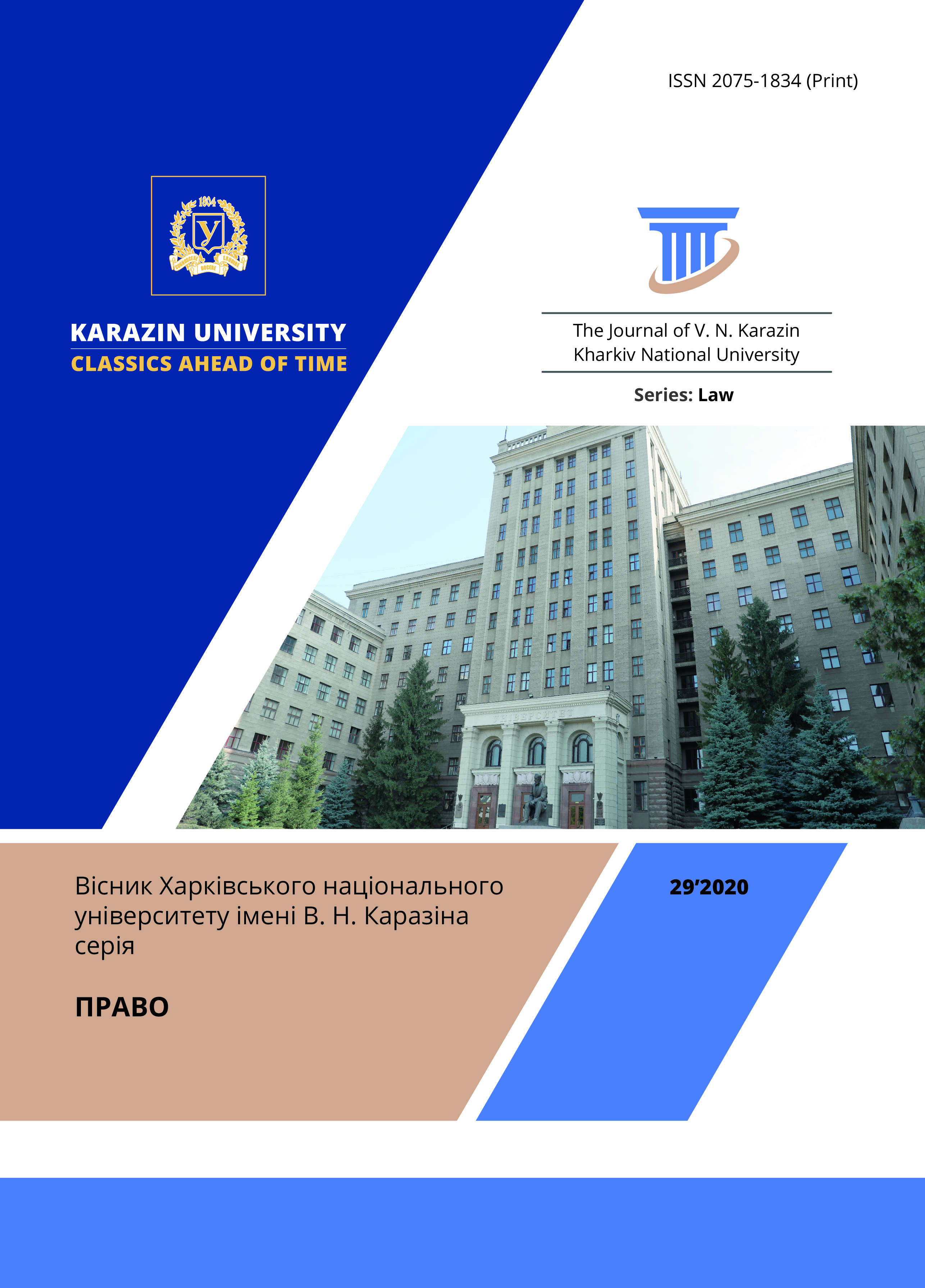INTERNAL SYSTEM OF LABOR DISPUTES SETTLEMENT WITHIN INTERNATIONAL FINANCIAL ORGANIZATIONS
Abstract
Summary
The article analyzes provisions of the statutory and procedural acts (Statutes, Rules, Staff Manuals etc.) adopted within the international financial institutions (International Monetary Fund, World Bank, Inter-American Development Bank, Asian Development Bank, African Development Bank) regarding the settlement of disputes emerging between the staff and the administration. It is emphasized that dispute prevention and resolution is today attracting more and more attention, as the effective prevention and resolution of labour disputes is critical for sound and productive employment relations worldwide. It is noted that the internal justice systems of these financial institutions are aimed primarily at resolving work-related issues and claims in order to ensure a harmonious and respectful working environment. It has been established that the internal mechanism for resolving labor disputes has a two-tier system, which includes informal (Ombudsman, mediation service, etc.) and formal levels (administrative review, Administrative tribunals, etc.). It is paid attention to the fact that administrative tribunals serve as the independent judicial forums for the resolution of employment disputes arising between international financial organizations and their staff members and application may be filed only after the exhausting all available channels of administrative review. It is indicated that all the resolution of labor disputes within the informal level is operational confidential and voluntary. Attention is drawn to the fact that, unlike the United Nations, the administrative tribunals established in the system of international financial institutions are single-level, and their decisions are final and are not subject to further appeal. The relevant conclusions have been drawn.
Downloads
References
1. Report of the External Panel (Review of the International Monetary Funds dispute resolution system) November 27, 2001. URL: https://www.imf.org/external/hrd/dr/112701.pdf (дата звернення 02.05.2020).
2. IMF Ombudsperson's Terms of Reference 2007. URL: https://www.imf.org/external/hrd/ombuds.htm (дата звернення 02.05.2020).
3. International Monetary Fund Summary: The Report of the External Panel on the Fund’s Dispute Resolution Systems and Implementation Plans Prepared by the Human Resources and Legal Departments (April 15, 2002). URL: https://www.imf.org/external/hrd/dr/041502.pdf (дата звернення 02.05.2020).
4. Statute of the Administrative Tribunal of the International Monetary Fund. URL: https://www.imf.org/external/imfat/statute.htm (дата звернення 02.05.2020).
5. The World Bank Staff Manual. URL: https://policies.worldbank.org/sites/ppf3/Pages/Manuals/StaffManual.aspx (дата звернення 02.05.2020).
6. Tribunal of the International Bank for Reconstruction and Development Statute (adopted by the Board of Governors on 30 April 1980 and amended on 31 July 2001 and on 18 June 2009). URL: https://tribunal.worldbank.org/sites/tribunal-ms8.extcc.com/files/documents/WBAT-Statute.pdf (дата звернення 02.05.2020).
7. Tribunal of the International Bank for Reconstruction and Development Rules (adopted by the Tribunal on September 26, 1980 and amended on 1 January 2002). URL: https://tribunal.worldbank.org/sites/tribunal-ms8.extcc.com/files/documents/WBAT-Rules.pdf (дата звернення 02.05.2020).
8. The Inter-American Development Bank Administrative Tribunal,Staff rule PE-323 labor relations and conflict resolution mechanisms. URL: http://idbdocs.iadb.org/wsdocs/getdocument.aspx?docnum=37223957 (дата звернення 02.05.2020).
9. Statute of the Administrative Tribunal of the Inter-American Development Bank Group. URL: http://idbdocs.iadb.org/wsdocs/getdocument.aspx?docnum=39458925 (дата звернення 02.05.2020).
10. Statute of the Administrative Tribunal of the Asian Development Bank. URL: https://www.adb.org/sites/default/files/institutional-document/33394/statute-adb-tribunal.pdf (дата звернення 02.05.2020).
Copyright (c) 2020 Pavel Fomin

This work is licensed under a Creative Commons Attribution 4.0 International License.




